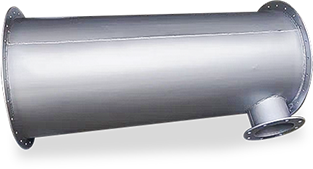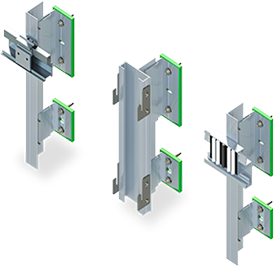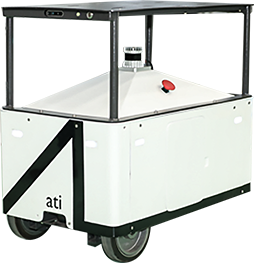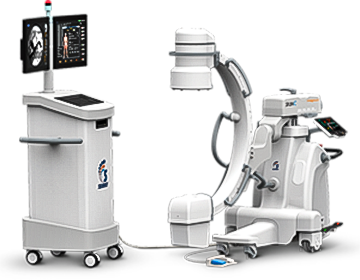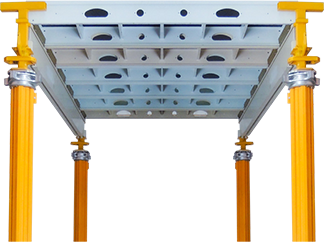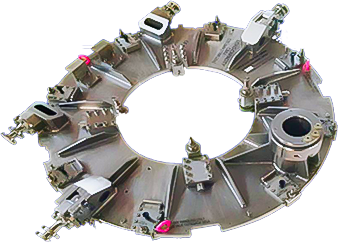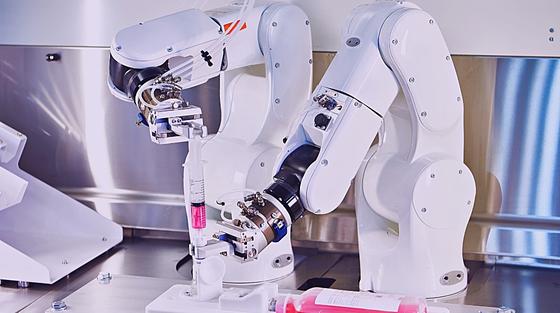
From education to industrial automation, entertainment, disaster response, consumer needs, aerospace, and more, robots are changing how things are done in almost every sector. With numerous use cases and new inventions coming out, it isn’t easy to categorise the vast umbrella of the types of robots.
However, every startup or company planning to manufacture robots for any specific purpose must know about the different types of robots, their use cases, the right way to prototype them and possible challenges you might have to mitigate.
This blog explores all these topics while setting you up for successfully manufacturing your robot.
Different types of robots
#1 Industrial Robots
Industrial robots form one of the most used and famous categories. They are used to perform repetitive tasks that were traditionally done by humans.
They mostly come with robotic arms that can perform desired movements and tasks, and are enabling industrial automation at scale.
#2 Humanoids
Humanoids are robots that are designed to look like humans. They would ideally have a face, arms, and legs like humans and can be used to perform specific tasks or be used for advertising/marketing.
The famous robot Sophia is an example of a humanoid.
#3 Surgical robots
Robots are increasingly being used to perform sophisticated medical procedures during surgeries with high precision. Surgical robotics simplify the process for doctors and are enhancing medical practices worldwide.
#4 Defense robots
From drones to combat robots, robotics is used extensively in the defence sector to automate tasks and reduce human involvement in riskier situations. They are used for surveillance of key areas, maintenance, combat, and other purposes.
#5 Autonomous Mobile Robots
This category of robots has taken industrial automation to a new level as they can make decisions and do not need inputs like other categories. Autonomous mobile robots are powered mainly by robotics sensors and cameras, which are used to help in the decision-making process.
Mainly, inputs from these sensors and cameras are used to help the robot navigate its path and perform specifications.
#6 Cobots
Cobots or collaborative robots are basically robots that work alongside humans in factories to perform specific repetitive tasks. In most cases, robots are not able to execute the complete lifecycle of manufacturing a particular product and human involvement is required in specific steps.
Cobots, in these cases, help by reducing the time taken for manufacturing with industrial automation and speeding up repetitive tasks.
Components of a robot
Before manufacturing a robot, you have to make decisions for every part of the robot, and each component would vary based on the type of your robot and the end-use case.
The major components of a robot, however, mostly remain the same. These are:
- CPU (Central processing unit): The CPU is the robot’s brain and sends instructions to different parts to perform specific actions. It can be configured for different use cases and integrated with sensors, cameras, and other components.
- Robotic arm: The arm consists of links and joints customised for movements the robot has to perform.
- End effector: These are attached to the end of the robotic arm to perform desired actions like grabbing, moving, shaping materials, or others. These can be grippers, process tools, sensors, or others.
- Controller: The controller converts signals from the CPU and communicates instructions to the motor. It can also be used to perform functions like calibration, PID control, filtering, temperature regulation, trajectory interpolation, etc.
- Sensors: Sensors are used to detect speed, movements, position, proximity, or other factors based on the use case of the robot.
- Actuator: It converts input energy into mechanical motion.
Prototyping your robot with on-demand manufacturing
The first step of the manufacturing process is creating a prototype of your industrial automation robot and testing it for its different use cases. The process starts with making the CAD design of the robot and selecting a manufacturing method. The most common methods include the following:
- CNC machining
- 3D printing
- Sheet metal fabrication
- And others
The complete product development cycle of the industrial automation robot starts from the prototyping stage ideally includes the following:
- EVT (Engineering validation test): This step evaluates and tests the prototype for functional problems and ensures all the movements and functions of the robot perform as per the need.
- DVT (Design validation test): DVT is the next stage and evaluates all the design aspects of the robot, along with considerations based on the manufacturing process and tools used.
- PVT (Production validation test): PVT is the final testing stage that ensures the complete process is ready for mass production. The mass production round is examined, and the manufactured robots are rigorously tested for quality assurance.
EVT, DVT, and PVT are a combination of various tests (including those necessary for compliance certifications). These must be performed with precision to ensure the success of your robot and its durability going forward.
How can Karkhana.io help?
Designing, testing, and manufacturing your industrial automation robot consists of many strategic steps and every startup or company has to ensure each step is carried out properly. Connecting all the dots and finding reliable manufacturing partners is a big challenge for robotics companies, especially because of the custom nature of the manufacturing.
Companies have to face these challenges at a time when each step plays a significant role in the product’s success, and minor testing problems can cause considerable challenges for the product.
We at Karkhana.io have made prototyping seamless for companies with on-demand manufacturing powered by our digital manufacturing platform.
Our platform is designed based on all the challenges companies face during manufacturing. Using our platform, we have helped a lot of startups and companies manufacture a variety of robots successfully. Some examples include helping:
- Solinas.in in manufacturing a pipeline crawler bot that inspects underground pipeline leaks, contamination, and other critical defects
- Ati Motors in manufacturing an autonomous, electric tug that moves trolley payloads
- Peer Robotics in manufacturing a Collaborative Mobile Robot for shop floor and inventory warehouse
- WCB Robotics in manufacturing wall climbing robots for window cleaning service provider companies, and
- Rymo in manufacturing a multifunctional physiotherapy device
We have made sure that our platform answers every challenge for companies, including end-to-end project management, DfM feedback via our expert engineers, regular QC, audits of suppliers, logistics, payments, solutions for product assembly, product localisation, sharing project files within your organisation on the platform dashboard, viewing your CAD files, and more.
Get a quote from Karkhana
Karkhana.io is a flexible & scalable manufacturing solutions provider that can cater to all your manufacturing needs.
Our flexible manufacturing services enable us to service client orders of all sizes from small batches to large volumes. We also help many of our clients in solving complex product assembly and localization problems.
We have an extensive, cutting-edge experience with all manufacturing services like CNC machining, 3d printing, Sheet metal fabrication, Injection moulding, and Vacuum casting.
We cater to every manufacturing need across industries like Aerospace, Automation, Automobile, Defence, Drone, Energy, EVs, FMCG, General Engineering, Medical, Oil & Gas, Pharma, and Robotics.
Partner with us to bring speed to your manufacturing. Talk to us about your manufacturing needs by filling up the form below or get in touch with Alay at alay@karkhana.io




